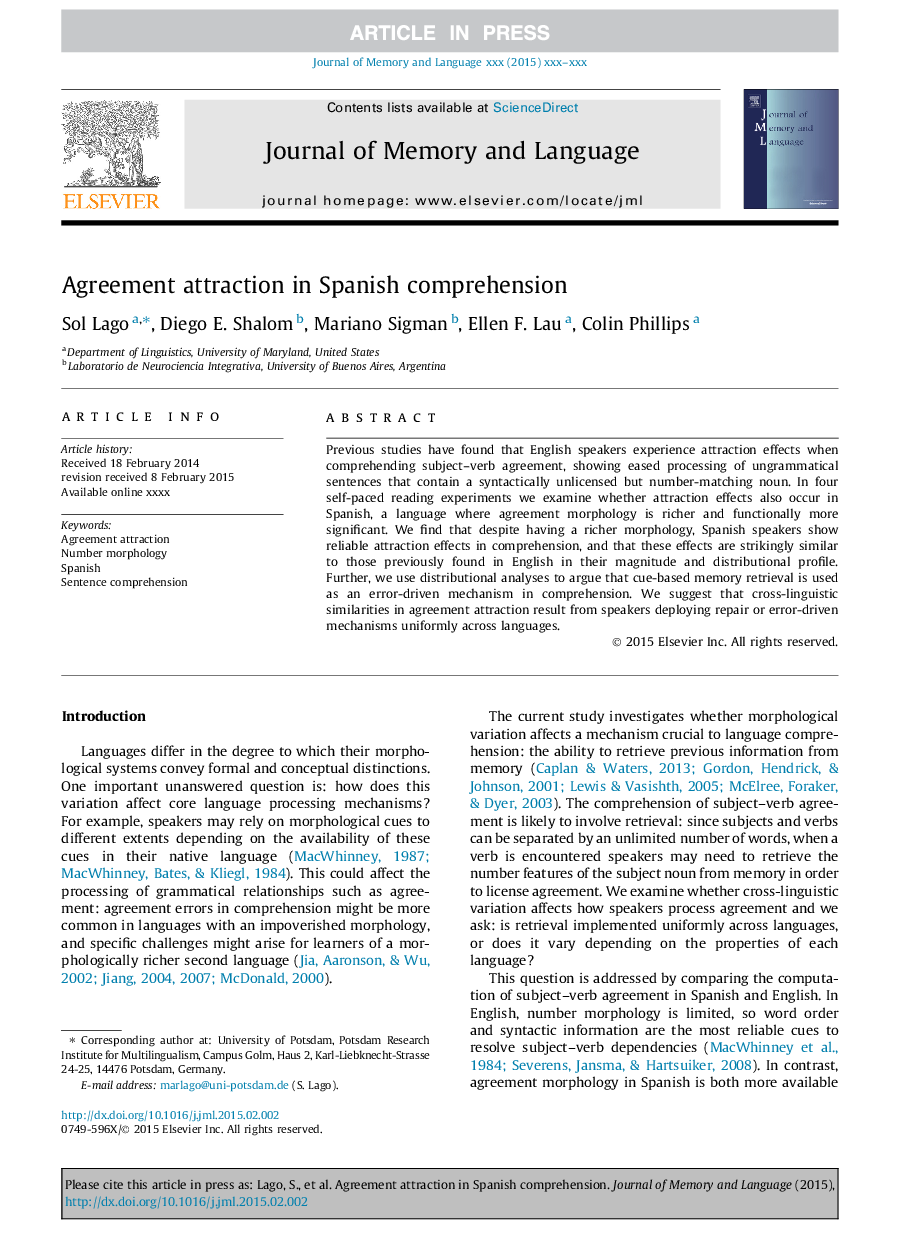| Article ID | Journal | Published Year | Pages | File Type |
|---|---|---|---|---|
| 7297078 | Journal of Memory and Language | 2015 | 17 Pages |
Abstract
Previous studies have found that English speakers experience attraction effects when comprehending subject-verb agreement, showing eased processing of ungrammatical sentences that contain a syntactically unlicensed but number-matching noun. In four self-paced reading experiments we examine whether attraction effects also occur in Spanish, a language where agreement morphology is richer and functionally more significant. We find that despite having a richer morphology, Spanish speakers show reliable attraction effects in comprehension, and that these effects are strikingly similar to those previously found in English in their magnitude and distributional profile. Further, we use distributional analyses to argue that cue-based memory retrieval is used as an error-driven mechanism in comprehension. We suggest that cross-linguistic similarities in agreement attraction result from speakers deploying repair or error-driven mechanisms uniformly across languages.
Keywords
Related Topics
Life Sciences
Neuroscience
Cognitive Neuroscience
Authors
Sol Lago, Diego E. Shalom, Mariano Sigman, Ellen F. Lau, Colin Phillips,
